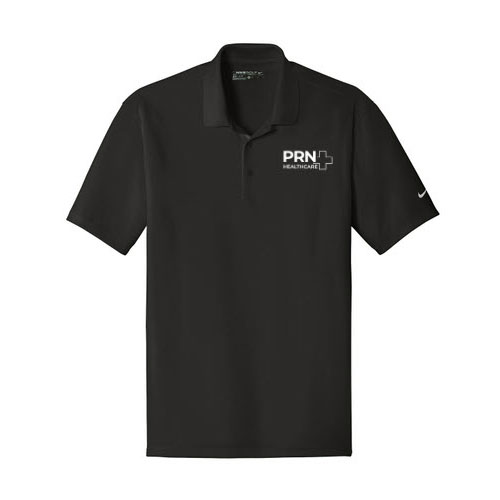Why a good resume is essential when applying for a new Physician Assistant job
A well-crafted and effective resume is necessary to secure a position as a physician assistant. Your resume serves as your first introduction to a potential employer and should be used as a tool to showcase your professional qualifications, skills, and experience. As your initial point of contact with a new employer, it should be written to make a lasting impression.
Your resume should be detailed, yet concise, and should highlight your master’s degree (MS-PAS), and any relevant specialized training. It is used to communicate your proficiency in patient care and to differentiate you from the field of competitive candidates.
We will provide a few important tips and an example of a template resume to help improve your resume/CV and secure a job interview.
How long should the Physician Assistant job resume be and what information should be included?
A PA’s resume should be comprehensive and concise. You should provide enough information to showcase your qualifications, skills, and experience. Generally, it is recommended that a resume be around two to three pages in length, but content should be prioritized over the length.
The following information should be included in your resume: contact information, resume summary or objective, education, licensure, clinical experience, skills, research and publications, teaching and academic roles, professional membership, continuing education, and any honors and awards.
Points that need to be included in a resume
Contact Information: Include your full name, professional title, phone number, email address, and LinkedIn profile (if applicable).
Pro Tip: Your name should be highlighted with the biggest text on the page and listed near the top. Your address should only include city and state. The provided email should be a professional email, but not an employer email. (Never use your current job email for a resume.)
Resume Summary or Objective: Provide a brief, targeted statement summarizing your expertise, career goals, and what you offer as a physician assistant.
Education: Include your educational background, including the name of the institution, degree earned, and graduation date. List your education in reverse chronological order with your most recent and highest degrees first. List your master’s degree and training.
Pro Tip: If you are a new graduate, you may want to place the education section above the experience section. As you gain work experience, your education section should be shortened. If you have not graduated, you can add “expected graduation date” to the school.
Certifications and Licenses: Specify your physician assistant license and any relevant certifications.
Clinical Experience: Include your work history in reverse chronological order. For each position, include the name of the hospital or clinic, location, and dates of employment. Highlight any specialized procedure or technique you have experience performing.
This is the most important section as a physician assistant. Your professional experience should be presented in bullet points and a separate section should be created for each relevant previous job. The headline for each previous job experience section should in bold and include the time you were employed. Beneath the company name, the position should be mentioned, and the bulleted points should list the job responsibilities.
Pro Tip: It is important to mention not only the job responsibilities but also the achieved results at that job.
Research and Publications: List any research projects you’ve been involved in and publications that you have authored or co-authored.
Presentations and Conferences: Include any conferences or seminars where you have presented your work or research findings.
Skills: Outline both your technical and interpersonal skills that are relevant. Include your proficiencies in relevant technology or subspecialties, such as anesthesia, dermatology or orthopedics.
Professional Memberships: List any physician assistant associations you are a part of.
Awards and Honors: Highlight any special recognition or awards you have received for your contributions to the profession.
Professional Development: Showcase ongoing education, training, and workshops that you have attended to stay current in the field.
Note: If applicable, mention any languages that you proficient in.
A PA’s resume should highlight a diverse set of medical, clinical, interpersonal, and leadership skills. Here are some important and relevant skills to include:
- Medical Skills:
- Ability to assess patient symptoms, interpret diagnosis tests, and develop differential diagnoses
- Knowledge of medications including indications, contraindications, and side effects
- Surgical and Emergency Proficiency:
- Skilled in assisting during surgeries including pre-and post-operative care
- Ability to handle medical emergencies including CPR and trauma care
- Clinical Skills:
- Competence in performing procedures such as suturing, casting, injections, and wound care
- Proficiency in conducting comprehensive and focused exams
- Ability to order and interpret lab tests, imaging, and other diagnostic procedures
- Empathy and Leadership Skills:
- Working closely with physicians, nurses, and other healthcare professionals to coordinate care
- Ability to understand and share the feelings of patients, providing emotional support and understanding while effectively communicating medical information
- Decision-Making:
- Ability to make an informed and timely evaluation.
- Judgement to choose the most appropriate treatment.
- Continuous Learning:
- Commitment to professional development and remaining current with advancements in healthcare.
- Attendance at relevant conferences and workshops.
- Communication Skills:
- Effective communication with the healthcare team
- Detailed and accurate documentation of patient records.
- Time Management:
- Efficient time management during clinic time and procedures.
- Ability to balance multiple responsibilities and prioritize tasks.
- Advocacy/ Quality Improvement:
- Advocating for patients, the profession, and improvements in healthcare policies and practices at the institutional, local, and national levels.
- Leading and participating in quality improvement initiatives aimed at implementing the latest research to improve patient care and tracking outcomes.
Pro tip: It is common for each job post to received hundreds of applications and a resume checking system is often in place for recruiters to filter through relevant applications. Your resume should be customized to each specific PA job you are applying for. Be sure to emphasize your relevant skills and experience to demonstrate to the employer you understand the requirements of the job and are the best candidate. You will be more successful if you identify the key phrases in the job description and incorporate them into your resume.
Resume example-template: You can find a template resume for a physician assistant on LiveCareer.com. You can also build, view other similar resumes, and customize your resume on their site.




